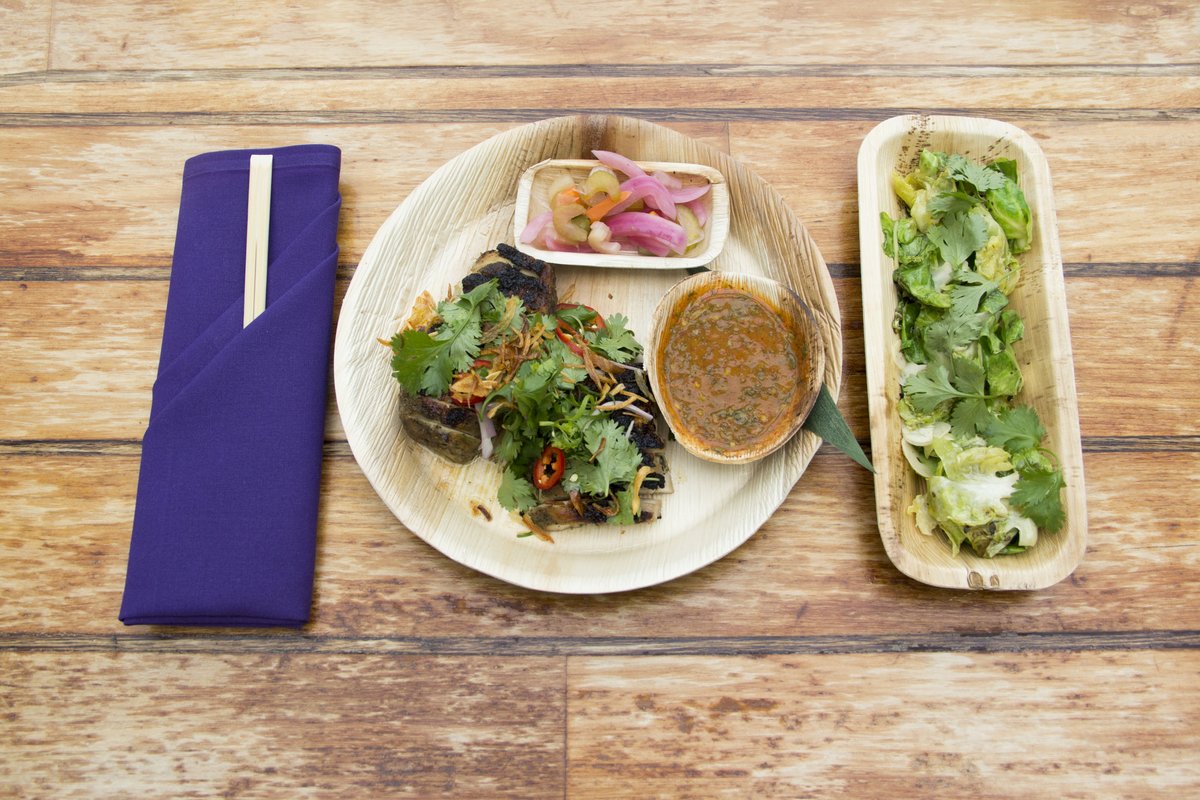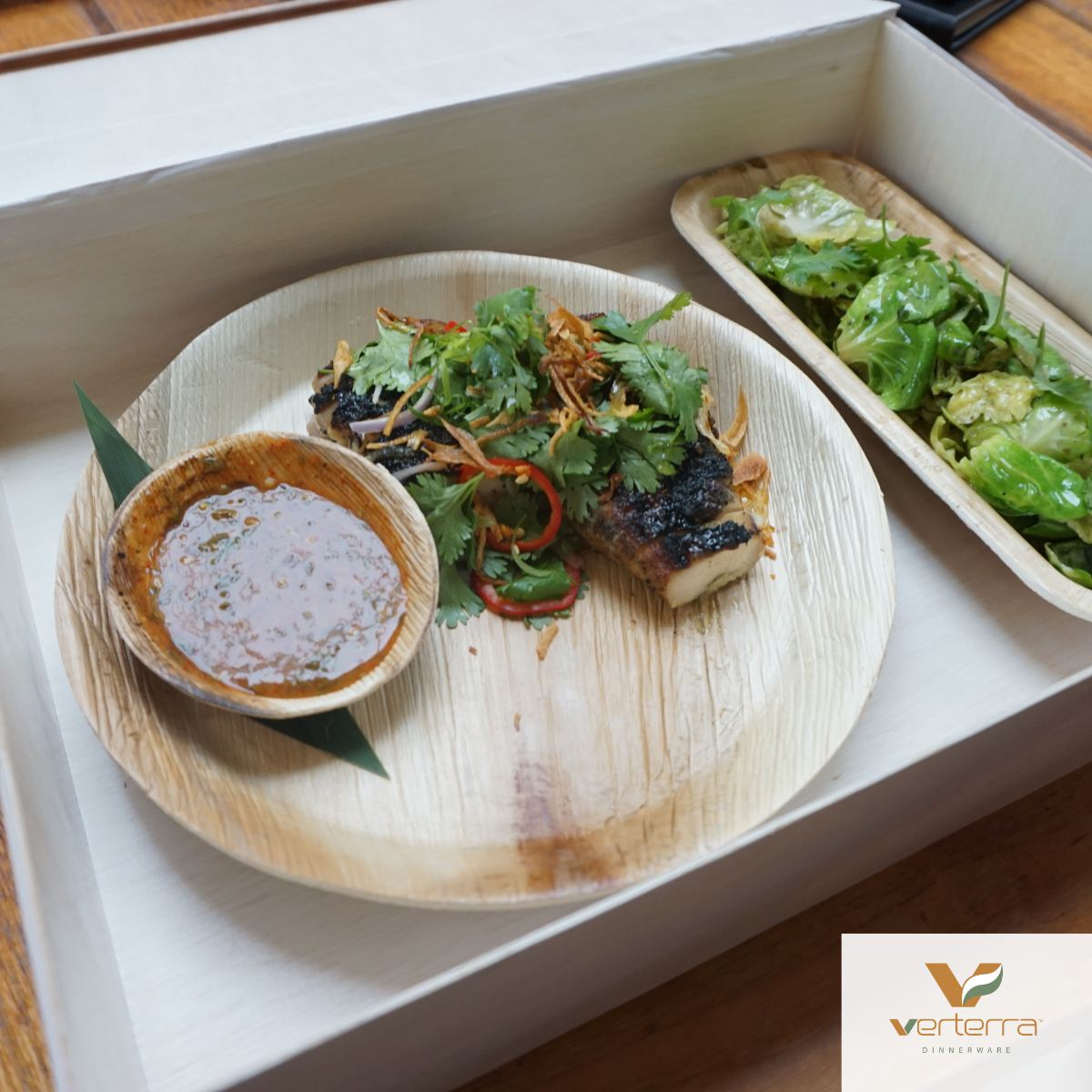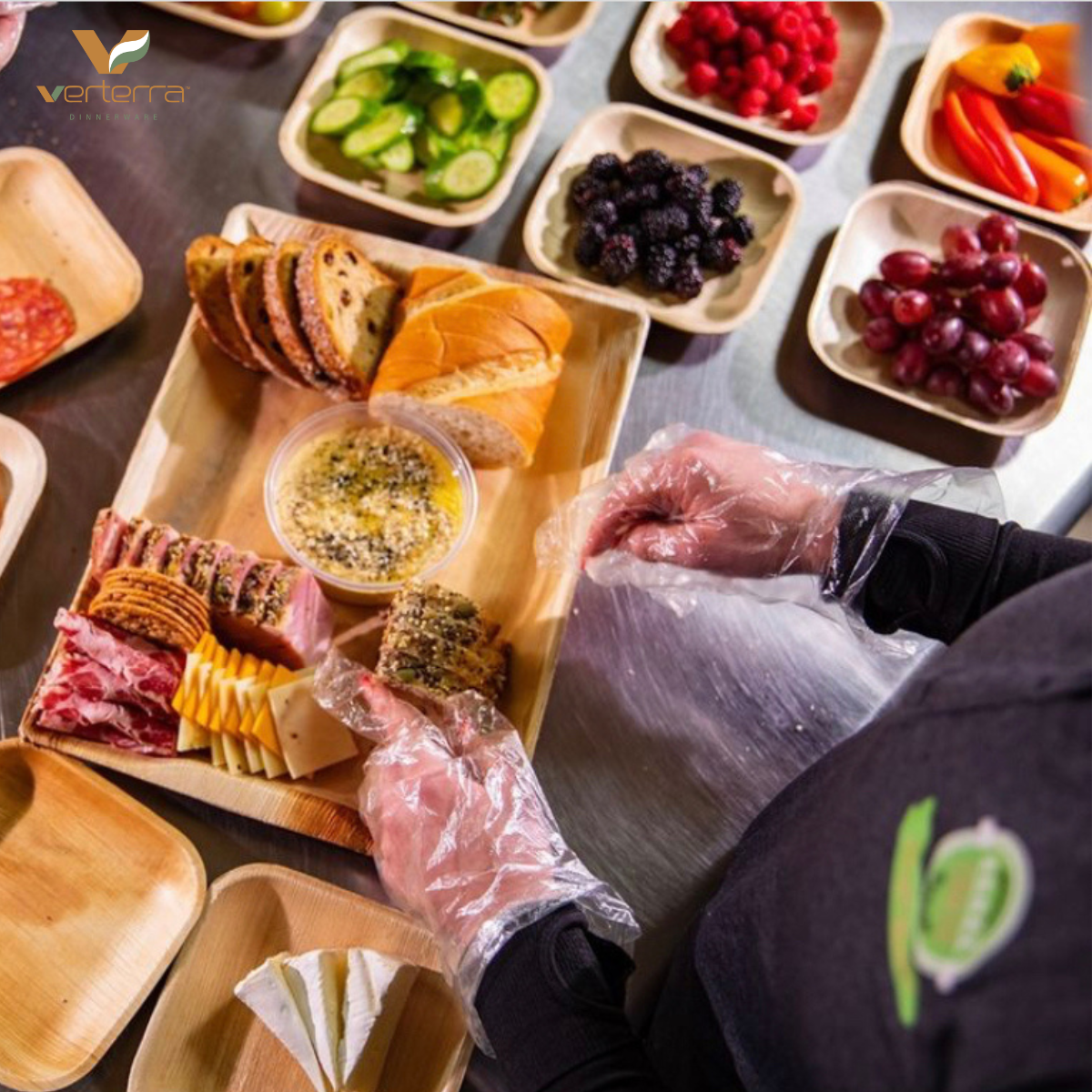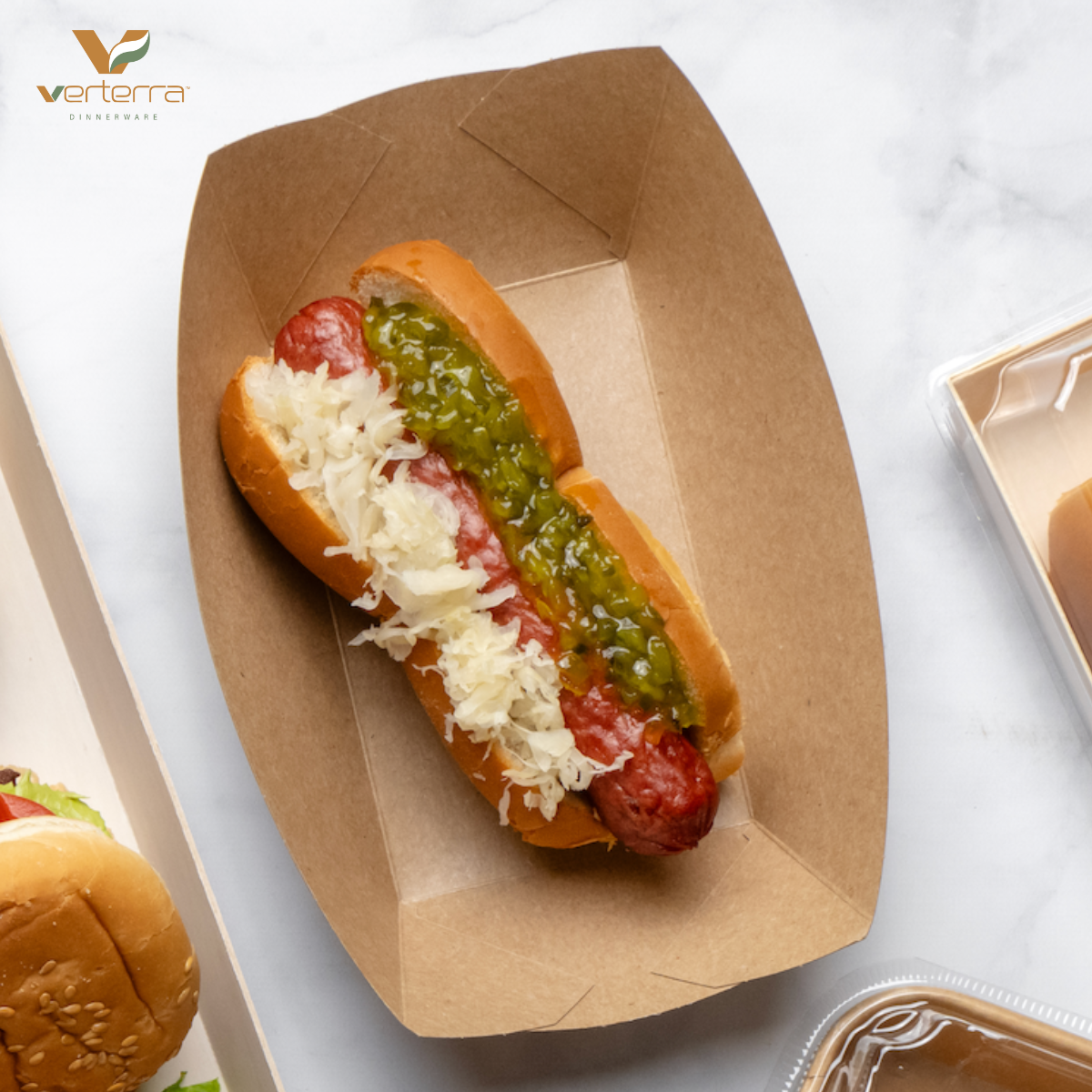
Is My Disposable Plate Compostable?
Composting has become a hot topic over the last couple of years, perhaps due to the fact that people are progressively more aware of the incredible waste management problems our world is facing.

Of course, with trash slowly seeping toxins into our soil and water, it makes sense that we’d want a solution like composting, which allows organic materials to break down naturally in order to be repurposed as fertilizer to help Mother Nature out.
Those who are new to composting might find it difficult to navigate the vast number of materials that can and cannot be composted.
While you may be making smart choices about the types of disposable dinnerware you use, you could still be halting your ecological efforts by recycling or disposing of your plastic and paper plates incorrectly.
Luckily, we’re breaking down everything you need to know about composting different types of materials, so take look to find out if your particular disposable plates are indeed compostable.
Paper Plates, Cups, and Utensils
Many paper plates, cups, and utensils will be compostable after use, with a caveat.

However, if your paper dinnerware includes some type of poly coating or special chemicals to help keep moisture out, then these will not be compostable, or even recyclable in most cases.
Any disposable paper dinnerware that is printed with ink will also not be compostable. You can check the packaging of your disposable paper plates or cups to see if the manufacturer says anything about them being biodegradable or compostable.
If so, they are likely fine to toss in your home composting system.
Plastic Plates, Cups, and Utensils
According to the Environmental Protection Agency (EPA), “all plastics that are compostable are considered biodegradable, but not every plastic that is biodegradable is compostable.”
Most disposable plastic dinnerware you come across will not be compostable and instead, must be recycled.
There are a few plant-based plastic materials that can be composted, and these will most likely be labeled as such.
You can usually find a special symbol denoting what kind of plastic your disposable plate or utensil was made from, which will help you identify the eco-friendliest way of disposing of it.
Many plastics can be recycled in your blue bin at home, while others may need to be dropped off at a specialized facility.
Bamboo Plates and Utensils
Generally speaking, bamboo plates and utensils will be compostable depending on the other ingredients used to make them.

Bamboo Plates by AllyCafe
Most bamboo dinnerware items are even compostable in your home systems, although they may take slightly longer to break down – around 4 to 6 months to be exact.
A good tip to keep in mind is cutting bamboo plates or utensils into smaller pieces, as this will help accelerate the composting process.
VerTerra’s Palm Leaf Dinnerware
Made of 100 percent renewable resources, our award-winning VerTerra Dinnerware from Fallen Leaves™ is fully biodegradable and BPI-certified compostable.

This line of single-use plates is a stylish alternative to plastic or paper dinnerware, and is manufactured without chemicals, waxes, dyes, or additives.
It will take around 90 days for palm leaf dinnerware to break down naturally in a home composting system.
Shop compostable single-use dinnerware today.
Sugarcane Plates, Cups, and Bowls
Another popular kind of disposable dinnerware is made from sugarcane, which is a renewable resource.
Once the sugar juice has been extracted from the plant, the fibers left over are what makes up these plates.
These kind of single-use plates, cups, and bowls will be compostable, as long as there are no coatings or dyes used in the manufacturing process. Simply dispose of them in your garden or a composting bin. These plates are often brown in color and will be stronger than a typical paper plate but not quite as strong as plastic plates.
Conclusion
Now that you know how to handle various disposable materials when it comes to composting, you can host beautiful, eco-friendly events and feel good about the waste you create.
VerTerra offers tons of biodegradable and compostable dinnerware and serveware for both the casual party host and the dedicated caterer.
Check out our selection of disposable dinnerware now to find what you need for your next event!
Also in The Dirty Dish

Disposable Luxe: How Compostable Tableware is Reshaping the Event Industry
Gone are the days when disposable meant flimsy, boring, and environmentally careless. In 2025, today’s event professionals are embracing “disposable luxe”—a fast-growing movement that combines elevated aesthetics with eco-conscious choices at affordable prices, making sustainability not just a requirement, but a statement.

The Eco-Conscious Caterer’s Toolkit: Essentials for Modern Events
Clients are no longer just asking what’s on the menu—they’re asking how it’s being served. Today’s tastemakers want elegant, low-waste events that impress guests and align with their values. That’s where Verterra comes in.
In this blog, we break down exactly how to create a stunning, sustainable setup using just five compostable essentials. Whether you’re catering a backyard tasting or a high-end corporate soirée, this is your go-to guide for effortless eco-luxury.
🌿 Sustainable never looked so good.

The Ultimate Guide to Food Boats
Food boats are more than just a convenient way to serve meals—they're a game-changer for eco-conscious food service businesses. From casual cafés to high-end catering, these biodegradable, stylish, and durable containers offer a sustainable alternative to plastic. But not all food boats are created equal. Verterra takes it to the next level with their innovative, chemical-free designs made from renewable materials like kraft paper and balsa wood. Want to know why top chefs and event planners choose Verterra? Read on to discover the ultimate guide to food boats and how they can transform your food presentation while protecting the planet.
